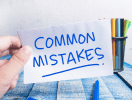Let’s face it – your palms are already getting sweaty just thinking about that upcoming interview, aren’t they? Don’t worry, you’re in good company. According to a recent survey by Indeed, 93% of job seekers experience interview anxiety, which is completely normal. But here’s the good news: you’re about to discover proven strategies that will help you transform those nervous butterflies into confidence-boosting allies.
“Interview nerves aren’t your enemy – they’re simply your body’s way of telling you that you care about the opportunity,” says Sarah Chen, a career coach with 15 years of experience preparing candidates for high-stakes interviews. “The key is learning how to channel that energy effectively.”
In this comprehensive guide, you’ll learn exactly how to manage interview anxiety, from science-backed calming techniques to practical preparation strategies. Whether you’re facing your first job interview or your fifteenth, these methods will help you walk into that room (or log into that Zoom call) with genuine confidence.
Ready to transform your interview jitters into interview success? Let’s dive in.
- The Science of Interview Nerves
- Why Interviews Trigger Anxiety
- Pre-Interview Preparation: Building Confidence
- Mastering Common Questions
- Physical Anxiety Management: Your Body, Your Control
- Mental Preparation Strategies: Train Your Mind for Success
- During the Interview: Your Moment to Shine
- Staying Composed: Your Mid-Interview Toolkit
- Avoiding Common Interview Mistakes
- Bringing It All Together: Your Path to Interview Success
- Frequently Asked Questions

The Science of Interview Nerves
Ever wondered why your heart races at the mere thought of an interview? Let’s break down what’s actually happening in your body and mind – because understanding your anxiety is the first step to mastering it.
Understanding Your Body’s Response
You’re about to enter the interview room. Your heart’s pounding, mouth feels dry, thoughts are racing.
What you’re experiencing is your body’s natural “fight or flight” response – an ancient survival mechanism that kicks in during challenging situations.
Here’s what’s actually happening:
- Your brain releases stress hormones like adrenaline and cortisol
- Your heart rate increases to pump more oxygen to your muscles
- Your breathing becomes faster and shallower
- Your digestive system slows down (hello, butterfly feeling!)
But here’s the interesting part: these physical responses are nearly identical to what athletes experience before a big game.
The difference? Athletes have learned to interpret these signals as preparation for peak performance rather than signs of distress.
Normal vs. Excessive Anxiety
How do you know if your interview nerves are normal or if they’ve crossed into problematic territory? Here’s a simple way to think about it:
It’s completely normal to feel nervous during an interview, regardless of how much you prepare.
Signs of Interview Anxiety
Interview anxiety is a common phenomenon that can manifest in various ways. Some common signs of interview anxiety include:
- A racing heartbeat or palpitations
- Sweating or trembling
- Difficulty speaking or articulating thoughts
- Feeling lightheaded or dizzy
- Nervous laughter or fidgeting
- Avoiding eye contact or fumbling with words
- Feeling overwhelmed or panicked
These physical and emotional symptoms can be intense and debilitating, making it challenging to perform well in an interview. However, recognizing these signs is the first step towards managing them.
By understanding that interview anxiety is a normal response, you can begin to implement strategies to alleviate it and improve your overall performance.
Excessive Interview Anxiety:
- Feels panic or inability to think clearly
- Experiences physical symptoms that interfere with performance
- Has difficulty expressing thoughts coherently
- Anxiety continues to escalate during the interview

Why Interviews Trigger Anxiety
Job interviews combine several stress-inducing elements:
- Being evaluated by strangers
- Having your future success on the line
- Needing to present your best self under pressure
- Facing uncertainty about what questions will come up
It’s like preparing for a performance where you don’t have the full script! No wonder it can feel overwhelming.
The Positive Side of Nervousness
Here’s something that might surprise you: moderate levels of anxiety can actually improve your interview performance. Research shows that the right amount of nervous energy can:
- Sharpen your focus and attention
- Boost your memory recall
- Enhance your ability to think on your feet
- Demonstrate to interviewers that you care about the opportunity
The key is learning to harness these feelings rather than fight them. As career expert Michael Thompson puts it, “Interview nerves are like a cup of coffee – the right amount energizes you, but too much can make you jittery.”

Pre-Interview Preparation: Building Confidence
Ever notice how having a solid game plan instantly makes you feel more in control? That’s because preparation isn’t just about gathering information – it’s about building your confidence from the ground up.
Let’s dive into exactly how you can prepare your way to interview success.
Research and Knowledge Building
Think of company research like building a house – you need a strong foundation before anything else. But let’s go beyond just skimming the company’s “About Us” page.
- Study the company’s recent news and press releases
- Follow their social media accounts to understand their brand voice
- Research their competitors and market position
- Read employee reviews on platforms like Glassdoor
- Analyze their products or services in detail
- Investigate the company’s approach to career progression
Making Your Research Interview-Ready
Don’t just collect information – organize it into talking points. For example:
“I noticed your company recently launched [Product X]. I’m particularly interested in how your team approached [specific feature], especially given the current market trends in [industry sector].”
Prepare Your Resume and References
Before an interview, it’s essential to prepare your resume and references meticulously. This preparation not only ensures that your documents are up-to-date but also boosts your confidence.
Here’s a quick checklist to get you started:
- Review and Update Your Resume: Make sure your resume is accurate and tailored to the job description. Highlight your most relevant experiences and achievements.
- Prepare a List of Professional References: Include their name, title, company, and contact information. Ensure your references are aware they might be contacted.
- Practice Common Interview Questions: Be ready to answer questions like “Why do you want to work for this company?” or “What are your strengths and weaknesses?”
- Research the Company and Position: Demonstrate your knowledge and interest by understanding the company’s mission, values, and recent developments.
Having a well-prepared resume and references can make a significant difference, helping you make a positive impression on the interviewer and feel more confident.
Crafting Your Interview Story
Your professional story isn’t just a list of jobs – it’s the narrative thread that makes you memorable. Think of it as your personal “highlight reel” that connects your past experiences to this new opportunity.
Key Elements of Your Story:
- Your professional journey’s arc
- Key achievements that demonstrate relevant skills
- Challenges you’ve overcome
- Why this role is the natural next step
STAR Method Response Preparation
The STAR method (Situation, Task, Action, Result) is your secret weapon for behavioral questions. But let’s make it even more effective.
Pick your top 5-7 professional achievements and format them using this enhanced STAR template:
Situation: Set the scene in one sentence
- “During my role as project manager at [Company], we faced a critical deadline for a $2M client project.”
Task: Describe your specific responsibility
- “I needed to coordinate five remote teams across three time zones to deliver the project.”
Action: Detail your solution (this should be the longest part)
- Walk through your step-by-step approach
- Highlight leadership or initiative moments
- Mention any innovative solutions
Result: Quantify your success
- Use numbers whenever possible
- Include both immediate and long-term impacts
- Mention any recognition or feedback
Record yourself telling these stories and listen back. Are you clear? Concise? Compelling? Practice until they feel natural, not rehearsed.
Technical Preparation for Modern Interviews
In today’s world, you need to be ready for both in-person and virtual interviews. Let’s cover both scenarios:
Virtual Interview Setup:
- Test your technology 24 hours before
- Position your camera at eye level
- Ensure your background is professional and well-lit
- Have a backup internet connection ready (phone hotspot)
- Keep your device charged and plugged in
In-Person Interview Logistics:
- Scout the location beforehand if possible
- Plan multiple routes to the venue
- Prepare a professional interview folder containing:
- Extra copies of your resume
- List of references
- Notepad and pen
- Company research notes
- Questions for interviewer
Remember, the goal of preparation isn’t perfection – it’s confidence. Each piece of preparation you complete is like adding another brick to your foundation of interview confidence.
Practice Makes Confident: Master Your Interview Skills
You’ve heard the saying “practice makes perfect,” but when it comes to interviews, let’s aim for “practice makes confident” instead. After all, the goal isn’t to sound like a robot reciting memorized lines – it’s to feel naturally comfortable expressing your authentic professional self.
Mock Interview Strategies: Level Up Your Game
Want to know what sets exceptional candidates apart? It’s not just about preparing answers – it’s about practicing delivery through mock interviews. And here’s where technology can be your secret advantage.
Transform Your Interview Skills with Skillful Talk.
Ever wished you could get professional feedback on not just what you say, but how you say it? That’s exactly what Skillful offers. Here’s what makes it a game-changer:
- Advanced Analysis: Get detailed insights about your body language, speech patterns, and even those subtle nervous habits you might not notice
- Data-Driven Feedback: Learn exactly how many filler words you use, when you’re making too many pauses, and if you’re fidgeting during responses
- Expert Evaluation: Receive professional feedback that helps you refine your interview technique
- Progress Tracking: Monitor your improvement across multiple practice sessions
Think of it as having a personal interview coach who never misses a detail!
Traditional Practice Methods
While tech-powered solutions are fantastic, don’t overlook these proven practice strategies:
Friend/Family Practice Sessions:
- Ask them to play different interviewer personalities
- Request brutal honesty in feedback
- Record sessions on your phone for self-review
Mirror Practice:
- Watch your facial expressions
- Practice maintaining good posture
- Perfect your professional smile
Professional Network Practice:
- Connect with industry peers
- Join interview practice groups
- Seek mentors in your field
Pro Tip: Mix up your practice methods. Each approach helps you develop different aspects of your interview skills. Very few people can effortlessly present themselves in front of unfamiliar audiences without feeling nervousness.

Mastering Common Questions
Let’s break down question preparation into three key categories:
Technical Questions:
- Research industry-specific terminology
- Prepare examples of relevant projects
- Practice explaining complex concepts simply
Sample Framework:
- State the concept
- Give a real-world example
- Connect it to the role
- Demonstrate problem-solving ability
Behavioral Questions
Create a response bank for questions like:
- “Tell me about a time you failed…”
- “How do you handle conflict…”
- “Describe your biggest achievement…”
Situational Questions:
Practice scenarios like:
- Handling difficult clients
- Managing tight deadlines
- Resolving team conflicts
Implementing Feedback Effectively
Getting feedback is great, but knowing how to use it is even better. Here’s your feedback implementation strategy:
Record and Review:
- Use video recordings to catch non-verbal habits
- Listen for verbal tics or filler words
- Note your response timing
Create an Improvement Plan:
- Focus on one area at a time
- Set specific, measurable goals
- Track progress over multiple sessions
Build Interview Stamina:
- Practice full-length interviews
- Maintain energy throughout
- Learn to stay focused for extended periods
Remember, the goal of practice isn’t to memorize perfect answers – it’s to become so comfortable with your professional story and achievements that you can discuss them naturally and confidently.
Think of it like learning to drive: at first, you have to think about every move, but with practice, it becomes second nature.

Physical Anxiety Management: Your Body, Your Control
Ever notice how a few deep breaths can instantly calm your nerves? That’s because your body and mind are deeply connected. Let’s explore powerful physical techniques that can help you stay cool and collected during your interview.
Quick-Relief Techniques: Your Emergency Toolkit
1. Take a Few Deep Breaths
Taking a few deep breaths can be a game-changer when it comes to calming your nerves and reducing interview anxiety. This simple yet powerful technique can be done anywhere, at any time, and offers several benefits:
- Slows Down Your Heart Rate: Helps reduce palpitations and brings a sense of calm.
- Lowers Blood Pressure: Reduces sweating and physical signs of anxiety.
- Improves Focus and Concentration: Helps you stay present and attentive.
- Enhances Overall Well-Being: Promotes a sense of calm and control.
To practice deep breathing, follow these steps:
- Inhale slowly through your nose for a count of four.
- Hold your breath for a count of seven.
- Exhale completely through your mouth for a count of eight.
- Repeat this cycle three to four times.
By incorporating a few deep breaths into your pre-interview routine, you can help your body relax and your mind stay focused.
This method can also be effective in managing panic attacks during stressful situations like job interviews.
2. Discrete Calming Techniques:
- Press your thumb and forefinger together (an “anchor” technique)
- Wiggle your toes inside your shoes
- Place both feet firmly on the ground
- Take a sip of water mindfully
3. Progressive Muscle Relaxation
Try this 60-second version before entering the interview room:
- Tense your shoulders for 5 seconds, then release
- Clench your fists, then relax
- Press your feet into the ground, then release
- Repeat anywhere you feel tension
4. The “STOP” Method:
- Stop what you’re doing
- Take a breath
- Observe your surroundings
- Proceed mindfully
5. Bathroom Break Recovery:
If anxiety spikes during the interview, it’s perfectly okay to say, “Could I take a quick bathroom break?” Then use these 60 seconds to:
- Splash cool water on your wrists
- Do 5 shoulder rolls
- Take 3 deep breaths
- Give yourself a quick pep talk

Mental Preparation Strategies: Train Your Mind for Success
Your mind is your most powerful ally in interview success. Let’s harness its full potential with these proven techniques.
Cognitive Behavioral Techniques
1. Thought Reframing in Action:
| Instead of | Try Thinking |
|---|---|
| “I’m going to mess this up” | “I’m well-prepared and ready to share my experiences” |
| “They’re judging everything I say” | “They’re interested in learning about my qualifications” |
| “What if I don’t know an answer?” | “I can thoughtfully work through any question” |
2. The 3P Method:
- Perspective: “This is one opportunity among many”
- Preparation: “I’ve done the work to be ready”
- Presence: “I’m focused on this moment”
3. Visualization Exercise
Try this 5-minute Success Visualization:
- Close your eyes
- Imagine walking into the interview room
- See yourself answering questions confidently
- Picture positive interviewer reactions
- Visualize leaving the interview successful
4. Use Positive Self-Talk
Positive self-talk is a powerful tool to boost your confidence and reduce interview anxiety. It involves consciously using affirmations and positive statements to encourage and motivate yourself. Here’s how you can practice positive self-talk:
- Use Affirmations: Repeat statements like “I am well-prepared and capable” or “I bring valuable skills to this role.”
- Focus on Your Strengths: Remind yourself of your achievements and the skills that make you a strong candidate.
- Practice Positive Visualization: Imagine yourself acing the interview, answering questions confidently, and receiving a positive response.
- Reframe Negative Thoughts: If you catch yourself thinking, “I’m going to mess this up,” reframe it to, “I’ve prepared well and I’m ready to share my experiences.”
By using positive self-talk, you can shift your mindset from anxiety to confidence, helping you approach the interview with a positive attitude.
5. Room Familiarization Technique:
- Research or request photos of the interview location
- Visualize yourself in the space
- Practice your entrance and initial greeting
- Imagine successful interactions in that setting
6. Power Posing and Confidence Anchoring
Pre-Interview Power Poses: Find a private space and hold these poses for 2 minutes:
- The Wonder Woman: Hands on hips, feet apart, chest up
- The Victory: Arms raised in a V-shape
- The CEO: Seated, leaning back, hands behind head
7. Create Your Confidence Anchors:
- Choose a physical trigger (like pressing your thumb and forefinger together)
- Pair it with a powerful memory of success
- Practice this association daily
- Use during the interview for an instant confidence boost
🎯 Pro Tip: Create a personal power phrase that resonates with you, such as “I bring value” or “I am well-prepared.” Use it whenever you need a quick confidence boost.
8. The Mental Rehearsal Sequence
Practice this sequence the night before and morning of:
- Visualize your successful entrance
- Imagine feeling calm and centered
- See yourself answering questions clearly
- Picture building rapport with interviewers
- End with a confident exit
Remember: Your mind can’t always tell the difference between a vividly imagined experience and a real one. Use this to your advantage by mentally rehearsing success!

During the Interview: Your Moment to Shine
The interview is finally here! This is where all your preparation comes together. Let’s walk through exactly how to stay composed and showcase your best self.
First Impressions: The Crucial First 60 Seconds
They say you never get a second chance at a first impression, but guess what? With the right strategy, you won’t need one. Here’s your moment-by-moment game plan:
The Power Entry:
- Enter with a straight posture (imagine a string pulling you up)
- Wear a genuine smile (practice this!)
- Make brief but confident eye contact
- Wait for the interviewer to initiate the handshake
- Give a firm (but not crushing) handshake
Small Talk Navigation:
- Have 2-3 neutral topics ready (weather, traffic, office building)
- Listen carefully and mirror the interviewer’s energy level
- Let them guide the transition to formal questions

Staying Composed: Your Mid-Interview Toolkit
Active Listening Techniques:
- Maintain natural eye contact (think: soft focus)
- Nod occasionally to show engagement
- Use brief verbal affirmations (“I see,” “Yes”)
- Keep your hands relaxed and visible
The Strategic Pause:
When faced with a challenging question, remember PREP:
- Pause briefly
- Reflect on the question
- Evaluate your response
- Proceed with confidence
Recovery Techniques:
If you stumble, try the “Bridge Back” method:
- Take a breath
- Say “Let me rephrase that”
- Start your response again
- Connect it to a stronger point
Body Language Mastery
Confidence Signals:
- Keep your movements deliberate and controlled
- Maintain an open posture (no crossed arms)
- Lean slightly forward to show interest
- Mirror the interviewer’s body language subtly
Managing Nervous Energy:
A great interview often begins with proper preparation and a positive mindset.
- Channel fidgeting into subtle grounding movements
- Keep one hand lightly resting on your leg
- Use natural hand gestures when making key points
- Return to your “home base” position between responses

Avoiding Common Interview Mistakes
There are several common interview mistakes that can hurt your chances of landing your dream job. Here’s how to avoid them:
- Show Up on Time and Prepared: Arriving late or unprepared can create a negative first impression. Plan your route and have all necessary documents ready.
- Research the Company and Position: Demonstrating knowledge about the company shows that you’re genuinely interested and have done your homework.
- Have Questions Ready: Not having any questions can make you seem disinterested. Prepare thoughtful questions about the role and the company.
- Stay Positive About Past Employers: Speaking negatively about previous employers or coworkers can reflect poorly on you. Focus on what you learned from past experiences.
- Be Honest: Lying or exaggerating on your resume or during the interview can backfire. Be truthful about your skills and experiences.
By avoiding these common mistakes, you can make a positive impression and increase your chances of securing the job.

Bringing It All Together: Your Path to Interview Success
Remember when we talked about those sweaty palms at the beginning? Now you’re armed with a complete toolkit to transform that nervous energy into interview excellence. But here’s the real secret: interview confidence isn’t about eliminating nerves entirely – it’s about managing them effectively and using them to your advantage.
As career strategist David Martinez notes, “The most successful candidates aren’t the ones who never get nervous. They’re the ones who’ve learned to channel their nervous energy into authentic enthusiasm and engagement.”
You’ve got this. Now go show them exactly why you’re the right person for the job.




